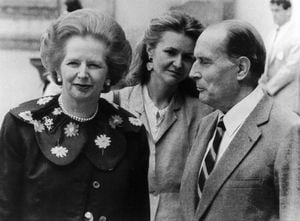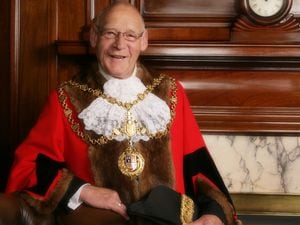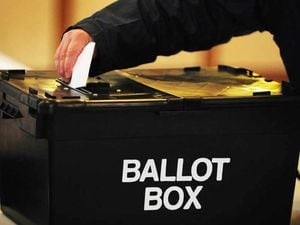The day Maggie demanded our money back
Margaret Thatcher was not known for public displays of emotion. Yet according to an advisor to former French president Francois Mitterand, she was reduced to tears as she sought to get a better deal for British taxpayers during a tetchy European summit in the mid-1980s.

It is 33 years this week since a summit of EEC leaders collapsed after the then British prime minister demanded a rebate on the amount of money it handed over to the organisation, the forerunner of the European Union.
And with echoes of the demands today that Britain could be hit with a £52 billion exit charge for leaving the EU, the summit held in Brussels in March 1984, and the follow-up meeting at Fontainebleau three months later, was characterised by bitter divisions and counter claims.
It marked the climax of a four-year battle over the size of Britain's contribution to the Common Market, and resulted in Greek prime minister Andreas Papandreou remarking: "It would be a great relief if Britain left the EEC."
With impeccable timing, Theresa May's decision to trigger Article 50 next week will mean that the late Mr Papandreou's wish will finally come true almost 35 years to the day since he made that remark.
In April 1970, before Britain had entered the Common Market, the six founding member states adopted a system which would see them contribute to EEC coffers through a pre-agreed formula, rather than through agreement with national parliaments, which had been the case until then.
The formula was based on three factors: customs duties collected on imports from the rest of the world, agricultural resources, and income generated from VAT.
As Britain's VAT income was proportionately higher than other member states, and the UK was more open to trade with countries outside the EEC, this system ked a disproportionate contribution by the UK when it joined the EEC in 1973.
On top of that, approximately 70 per cent of the EEC budget was used to subsidise the Common Agricultural Policy (CAP). As Britain had a relatively small agricultural sector compared to other EEC members, it meant that Britain received less than other countries in subsidies.
The issue was first raised by Mrs Thatcher's Labour predecessor, Jim Callaghan, shortly before his defeat at the 1979 General Election. However, the new prime minister would prove to be much more vocal about the matter.
In November 1978, she told fellow European leaders "We want our money back!", and threatened to withhold VAT payments if if Britain's contributions were not adjusted.
“We are not asking for a penny piece of Community money for Britain,” she said after the meeting. “What we are asking is for a very large amount of our own money back.” Mrs Thatcher was offered a rebate of £350 million but rejected it
But it was the summit on March 21, 1984, where the gloves really came off. Following the 1980 confrotation, the EEC had agreed that Britain would receive a rebate of £450 million from its contributions in 1984, with a further £600 million promised the following year. But the summit collapsed into chaos when the move was vetoed by the French and Italians, and Mrs Thatcher began plans for emergency legislation to be passed by the end of the month.
Mrs Thatcher made clear she did not intend to back down describing the actions of the EEC as "reprehensible".
"It is almost intolerable that one should be expected to send a supplementary levy in the face of what has happened," she said.
But Italian prime minister Bettino Craxi said: "The British government bears the entire responsibility for this failure."
EEC President Gaston Thorn said it was imperative an agreement was reached.
"We have so many challenges to face and the community is getting more and more shaky. We cannot go from one failure to another," he said.
The crisis led to Mrs Thatcher being branded "the Outlaw of Europe", and the man who had led Britain into the EEC, former Tory prime minister Edward Heath, said her planned retaliation was illegal and unconstitutional, adding that the did not believe the Cabinet would back it.
Mr Heath said he would vote against the legislation, and believed a large number of MPs would follow his lead.
"You cannot defuse a situation by countries going tit-for-tat," he said.
Mr Heath added that the Government had told striking miners that they had to obey the law.
"I can't turn around and then say we can deliberately break the law."
In the end, the matter was resolved in a second summit three months later, but not without bitter acrimony. A deal was struck that would see 66 per cent of Britain's net contribution to EU coffers refunded, although it was also increased to increase the country's VAT contributions at the same time. The agreement was portrayed as a triumph for Mrs Thatcher's no-nonsense negotiation skills, but not everyone shared this view.
French economist Jacques Attali, a senior adviser to President Francois Mitterrand, later claimed she lost the rebate battle because she had to accept only half of her “embarrassing” demands.
He said: “It was a defeat. Because she was coming there to get twice as much as she has got. And it was a defeat because she was hoping to get the Germans on her side in order to isolate the French presidency, but the Germans said no to Mrs Thatcher at the last minute conversation and she was defeated.
“Actually she cried. Mitterrand told me: ‘She’s broken like a piece of glass.’ And she actually was. I was surprised to see that, she was really broken when she accepted the final deal.”
Mr Attali said the deal to offer Britain a rebate, brokered in 1980 by then French president Valery Giscard D'estaing, was a "silly agreement".
He said Mr Giscard D'estaing, who was one of the leading architects of the EEC, had come up with the agreement mainly to secure his re-election. Mr Attali claimed that after long and intense negotiations, EEC leaders agreed that Britain could have 65 per cent of its net contribution returned, but she pleaded with Mr Mitterand for an extra percentage point.
"She ended up crying, crying in the middle of the meeting, accepting, begging half of it."
Mrs Thatcher was not the last politician to clash with EU leaders over Britain's rebate. In 2005, there were outspoken exchanges between Tony Blair and EU commission president Jean-Claude Juncker, who had called for Britain to give up or freeze part of its rebate, which by this time worth £3 billion a year. The deal collapsed when it emerged that the EU was unwilling to reform the Common Agricultural Policy.
Mr Juncker accused Mr Blair of scuppering a deal by insisting that a review of the budget policy concentrate solely on reform of the farm subsidies.
"This was impossible because it was unacceptable to other member states," said Mr Juncker. \However, Mr Blair did agree to exclude the costs of expanding the EU from the rebate, which was later claimed to have reduced the value of the rebate by 45 per cent.
David Cameron also refused to pay an extra £1.7 billion towards the cost of running the EU in 2014, which was said to reflect Britain's economic performance. He warned that such demands "certainly doesn't help" the chances of Britain remaining in the EU in a proposed future referendum.





